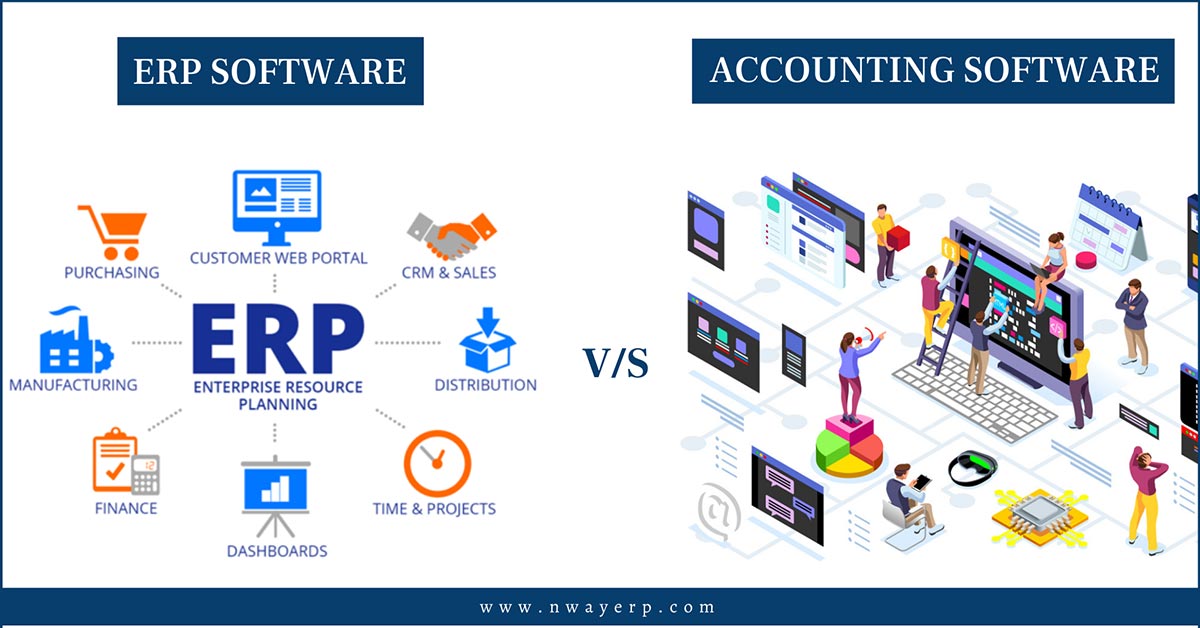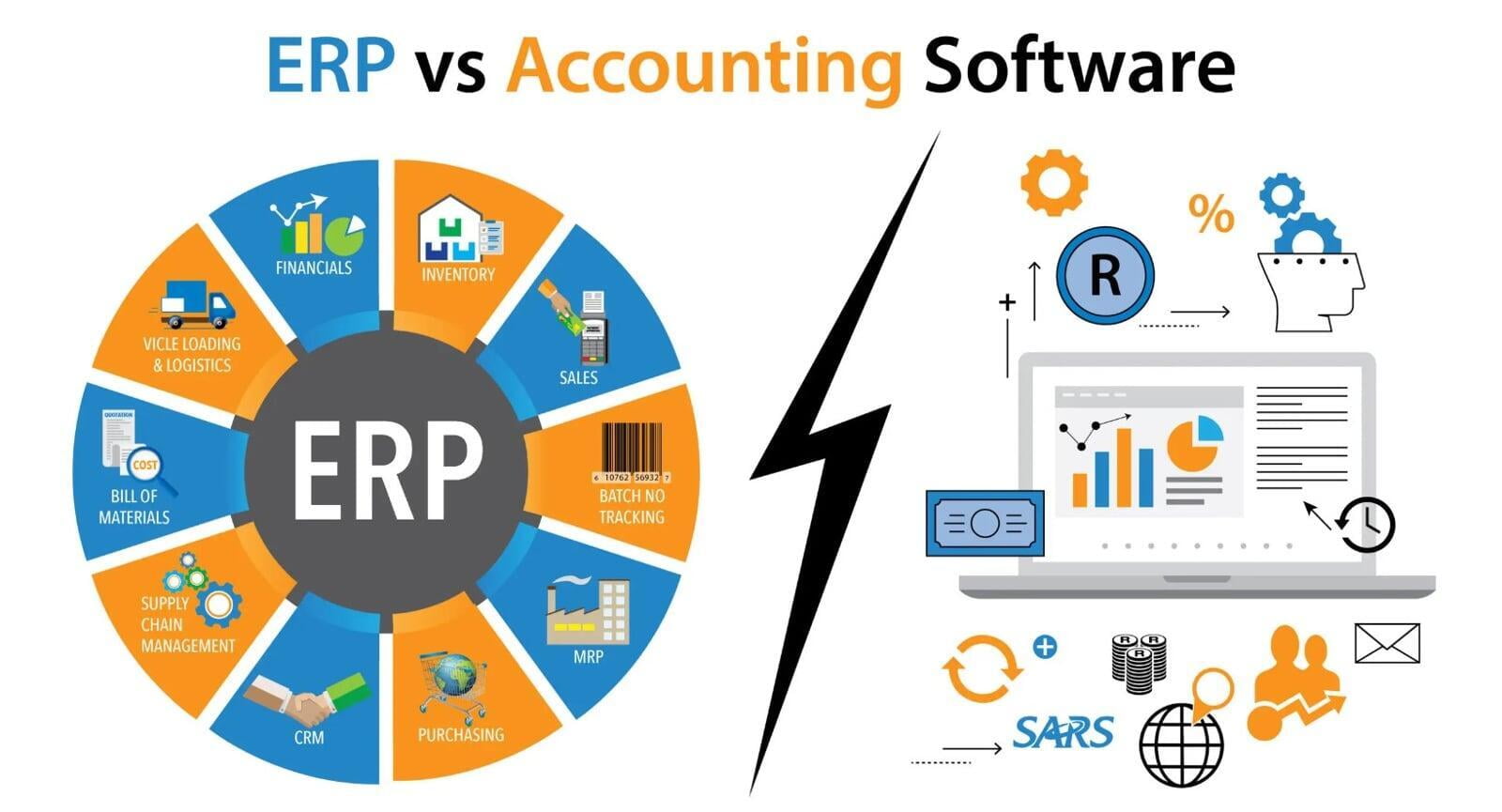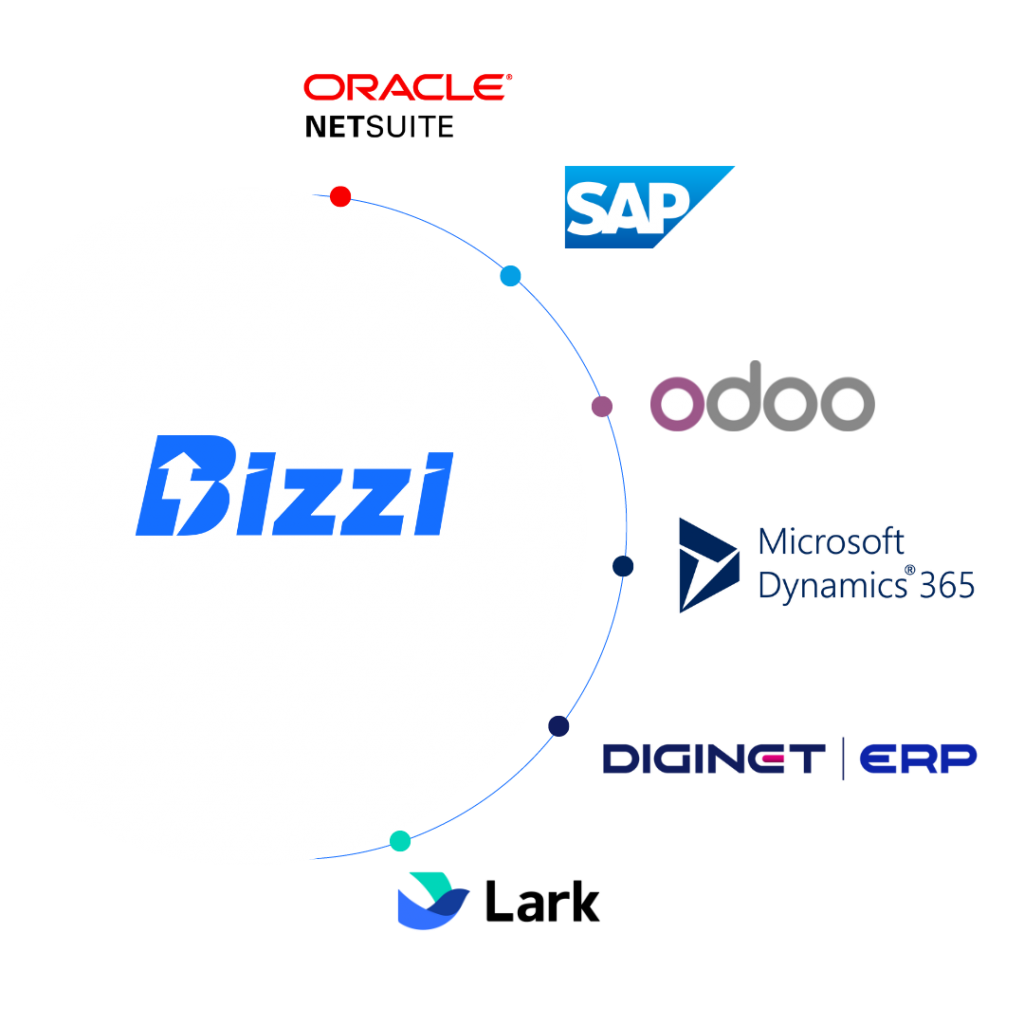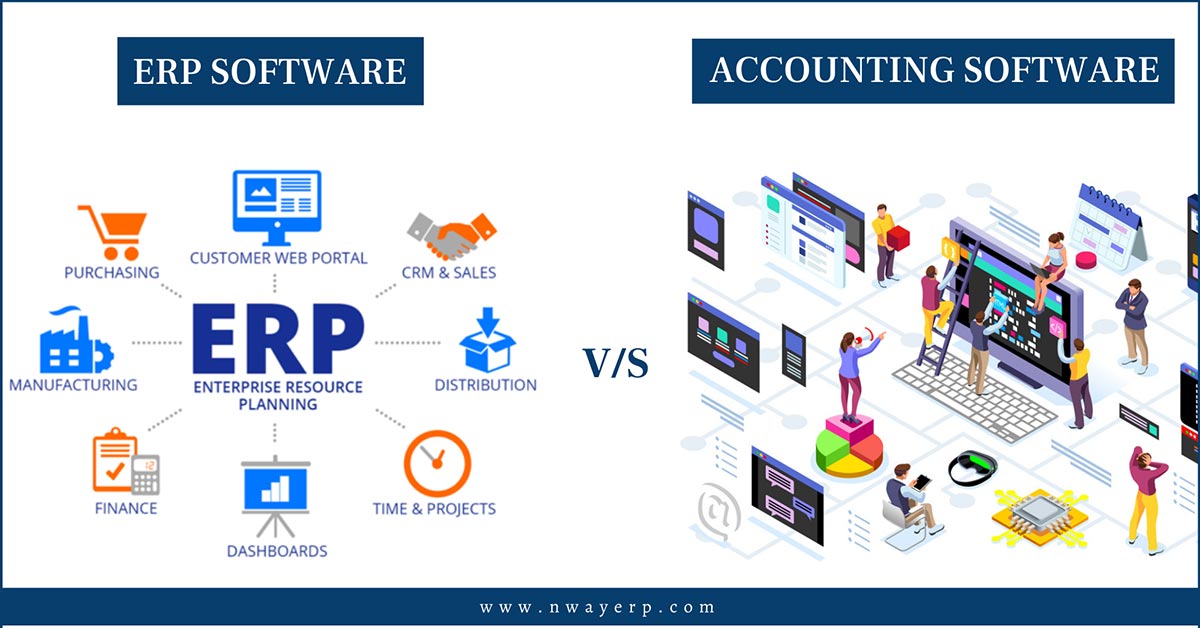In the context of digital transformation, ERP accounting software has become an indispensable tool, helping businesses standardize financial processes, especially in cost management and control. Choosing and implementing a suitable system requires careful consideration of needs, scale and long-term goals, especially when operating costs are a headache for many businesses.
This article by Bizzi will analyze in depth about ERP accounting software, from definition, functions, benefits, implementation process to important selection criteria, helping businesses make the most accurate investment decisions to optimize their financial system.
Accounting ERP Software What is that?
Accounting ERP software is a central module in an enterprise resource planning (ERP) system, designed to consolidate and automate all financial and accounting operations of an organization. Instead of operating independently, this module links financial data from all departments (sales, purchasing, warehouse, human resources) into a single database, ensuring accuracy, consistency and real-time updates.
Its role is the backbone of the management system, where every business transaction that occurs, including expenditures, is recorded, processed and reported, providing management with a comprehensive and reliable financial picture.

Core functions of Accounting ERP Software
A system ERP accounting software Comprehensive will automate and optimize key financial operations, especially those directly related to cost management.
H3: General Ledger and Budget Management
This is the foundation of the system, where all financial transactions are recorded. This function maintains a centralized general ledger, allows the establishment of an account system according to the regulations of the Ministry of Finance and provides instant financial status. More importantly, the system allows businesses to set up detailed budgets for each department, project and automatically warns when actual spending exceeds the norm. This is the first and most important step to tight cost control, preventing overspending.
H3: Automate Accounts Receivable and Accounts Payable Management
- Debt Management: Automatically track debt of each customer and supplier. The system provides debt aging reports and sets up automatic debt reminder process via email/SMS.
- Invoice Processing and Management: This is a core function that directly affects cost management efficiency. ERP system supports Accounts Payable Management, but often requires specialized solutions to fully automate. A manual invoice processing process is time-consuming, error-prone, and difficult to control. Therefore, integrating AI and RPA technology to automate 100% processes input invoice processing is extremely necessary.
H3: Fixed Asset Management and Tax
- Fixed Asset Management: Track the entire life cycle of assets from acquisition, to commissioning, to disposal. Accounting ERP software Automatically calculate depreciation using multiple methods and plan maintenance and repair efficiently.
- Tax Management: Simplify compliance with Vietnamese tax laws by automatically calculating taxes (VAT, CIT, PIT) based on transaction data.
H3: Financial Reporting, Analysis and Multi-Unit Support
The system automatically aggregates data to create important financial reports. Intuitive analysis tools and dashboards help managers quickly grasp the financial situation, especially cost analysis reports by item, helping to identify abnormalities and make timely cost-cutting decisions.
Outstanding benefits when businesses apply Accounting ERP Software
The implementation ERP accounting software Not only helps to improve competitiveness but also directly optimizes the cost problem of the business.
- Increase data accuracy up to 99%: Eliminating manual data entry, especially in complex processes like expense invoice processing, helps reduce errors and ensures consistent financial data.
- Reduce 50% operating time and costs: Automating repetitive tasks frees up accounting staff. This is especially effective when processing thousands of incoming invoices each month, helping businesses save significant staff and operational costs.
- Provide real-time management reporting: Data is updated instantly, allowing management to access financial reports and cost analysis anytime, anywhere, providing a transparent view to control spending more effective
- Enhanced security and internal controls: Centralized management data and detailed authorization mechanisms help prevent fraud risks in payment and expense approval processes.
- Compliance Support: The system is designed to comply with Vietnamese accounting standards (VAS), ensuring the validity of cost documents.
Which businesses should use Accounting ERP Software?
Accounting ERP software especially essential for businesses facing the challenge of managing a large volume of transactions and expenses incurred on a daily basis.
- Small and Medium Enterprises (SMEs) are on the rise: As the scale grows, manual cost management becomes overwhelming. ERP helps standardize processes, laying a solid foundation for effective financial control.
- Enterprises with many branches and subsidiaries: ERP is a mandatory tool to manage and consolidate cost reports from multiple units, helping management have an overall view of the entire corporation's spending situation.
- Manufacturing, distribution and retail businesses: Industries with complex supply chains with thousands of purchase transactions and supplier invoices each month will benefit the most from the automation capabilities of ERP.
Compare Accounting ERP Software and independent accounting software
The fundamental difference between the two systems lies in scope, integration capabilities and administrative orientation, especially in overall cost management.
| Criteria | Accounting ERP Software | Independent accounting software |
|---|---|---|
| Scope | Comprehensive management, linking costs with other activities such as purchasing and production. | Focus only on recording costs from an accounting perspective. |
| Data Integration | Cost data is synchronized in real time from all departments. | Fragmented data makes it difficult to get an overall view of spending. |
| Reporting & Analysis | Provide multidimensional cost management reports, supporting strategic decision making. | Mainly provides basic financial reports. |
| Level of automation | Automate the process from request to payment -> approval -> payment. | Low level of automation, mainly data entry. |
| Scalability | Easily integrates with advanced expense management solutions. | Difficult to integrate and extend. |
| Expense | Higher initial investment costs but optimal long-term operating costs. | Lower investment costs. |
7-Step Implementation Process Accounting ERP Software success
Implementing ERP is a big project. To be successful, businesses need to focus on solving core problems, including optimizing cost management processes.
- Define objectives and scope: Businesses need to clearly define specific goals, for example: “reduce 30% expense invoice processing time”, “automate 95% payment approval process”.
- Forming the project team: Including representatives from management, accounting, IT and related departments.
- Select supplier: Evaluate vendors based on experience, technological capabilities, and ability to integrate with other cost management solutions.
- System analysis and design: The supplier will work with the project team to survey and redesign the cost management process to optimize it on the new system.
- Installation and customization: Install software and customize approval flows, spending limits according to company policies.
- User training and testing: Comprehensive training of staff on new financial processes and system testing.
- Go-live and post-deployment support: System officially operational. Supplier continues to support to resolve arising issues.
5 Key Factors When Choosing Accounting ERP Software
To choose the most suitable solution, businesses need to carefully evaluate factors related to the software's cost management capabilities.
- Suitable for size and industry: Choose software that has cost management modules that are specific to your industry.
- Supplier reputation and experience: Priority is given to suppliers with experience in successfully implementing cost optimization projects for businesses.
- Technology and flexibility: Evaluate your ERP's ability to integrate with cost management automation platforms via APIs. This is critical for overall optimization.
- Friendly and easy to use interface: The intuitive interface will make it easy for employees from different departments to create payment requests, making the process smoother.
- Total Cost of Ownership (TCO): Take a comprehensive look at costs to ensure the investment is truly effective in cutting operating costs.

Important notes for effective exploitation Accounting ERP Software
To maximize benefits, especially in cost management, businesses need to focus on:
- Intensive and continuous staff training: Ensure that staff not only in the accounting department but all departments are aware of spending policies and procedures on the system.
- Standardize and control input data: Establish strict control procedures for input cost documents to ensure validity and accuracy.
- Integrated optimization: This is key. Integrating ERP with a dedicated expense management platform creates a robust, automated, and transparent financial system.
Integrate Bizzi with ERP: Upgrade your cost management power
In spite of ERP accounting software is a powerful tool, but to completely solve the problem of cost management, integrating an in-depth solution like Bizzi is a strategic step. Bizzi is a platform that comprehensively automates the process from the time the cost is incurred to the time the payment is completed.
Bizzi Direct integration with popular ERP systems like SAP, Oracle NetSuite, Microsoft Dynamics 365 and Odoo. This combination turns your ERP system into a smart and highly efficient cost control center.

Advantages of integrating Bizzi with ERP:
- Fully automate invoice processing: Bizzi automates time-consuming manual steps like data extraction, 3-way reconciliation and voucher generation, reducing processing time by up to 80%.
- Instant data synchronization: All cost and invoice data processed by Bizzi will be seamlessly synchronized into the ERP system, ensuring accurate accounting records.
- Increased control and transparency: Bizzi provides a transparent, electronic spending approval flow that adheres to company policies, helping to effectively control cash flow and combat fraud.
- Rapid deployment: Bizzi is designed for rapid integration and deployment, without disruption to existing business workflows.
To get expert advice on solutions and custom design of functions to suit your business needs, Contact us to get suitable accounting ERP consulting right here!
Frequently Asked Questions (FAQs)
1. How much does it cost to implement accounting ERP software?
Costs depend on many factors: scale, complexity, number of users, and provider. Costs can range from a few hundred million to several billion VND.
2. How long does it take to deploy?
A typical accounting ERP implementation project can last anywhere from 3 to 9 months, depending on the scope and complexity of the project.
3. Is ERP enough to manage all costs?
ERP provides a solid foundation. However, for full optimization, especially for businesses with high transaction costs, integration with a dedicated solution like Bizzi will bring the highest efficiency.
Conclude
In today's business environment, ERP accounting software is a strategic investment to standardize and control finances. However, to truly transform the finance department into an efficient operations center, helping businesses save costs and grow sustainably, combining ERP with intelligent automation platforms like Bizzi is inevitable.
This synergy not only reduces manual processing time, but also provides transparent data for management to make the most informed cost control decisions.


